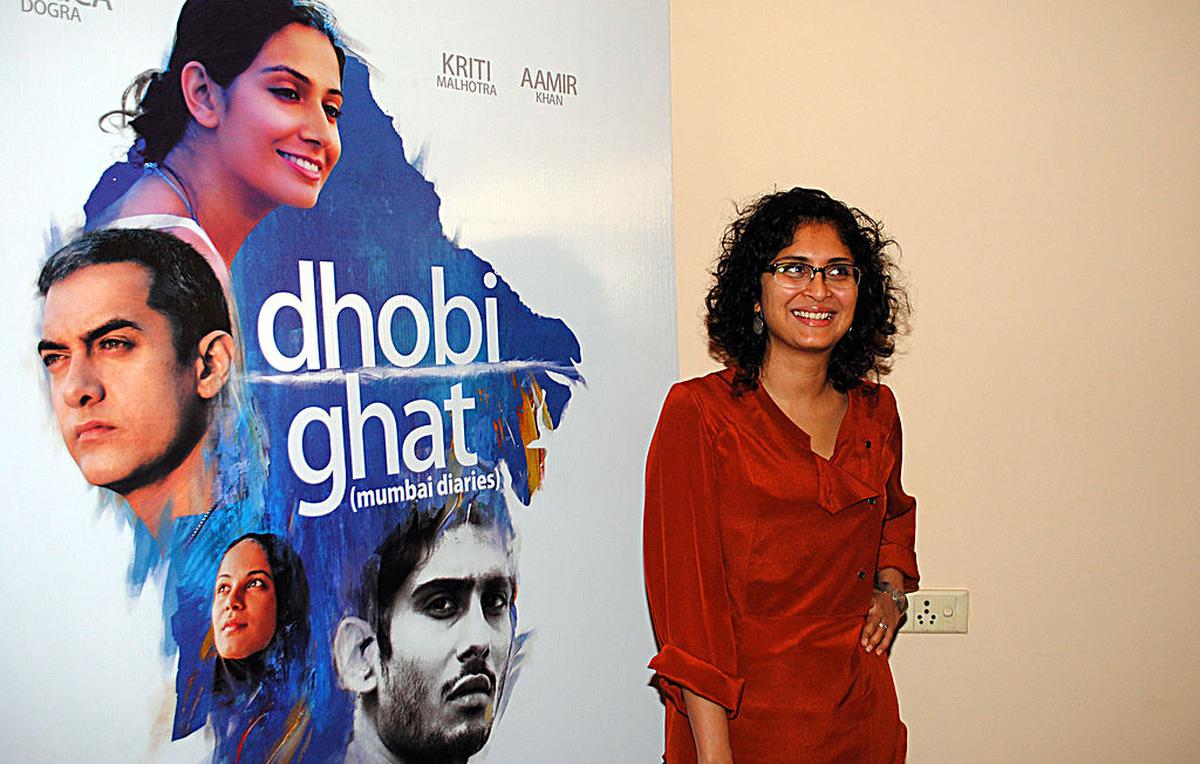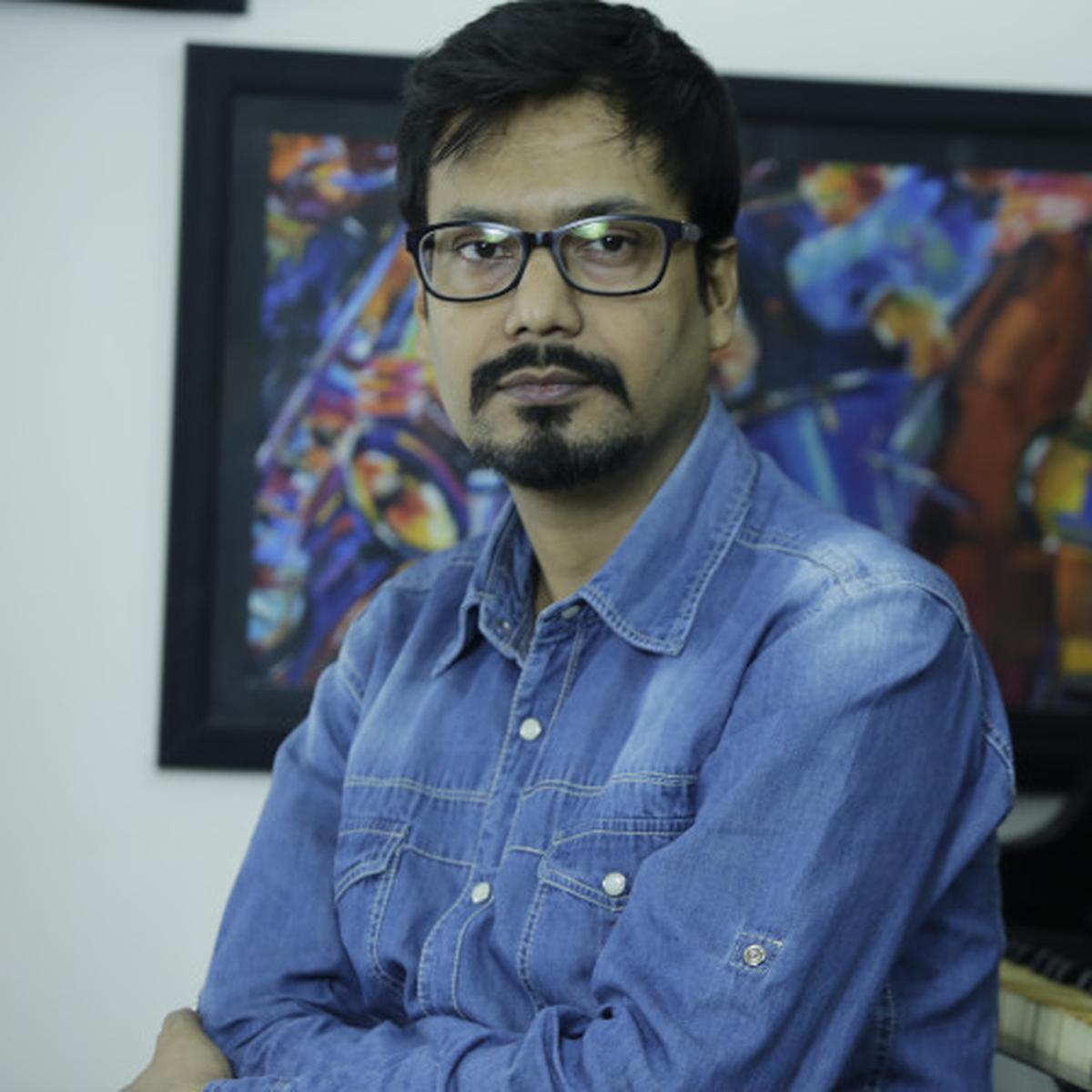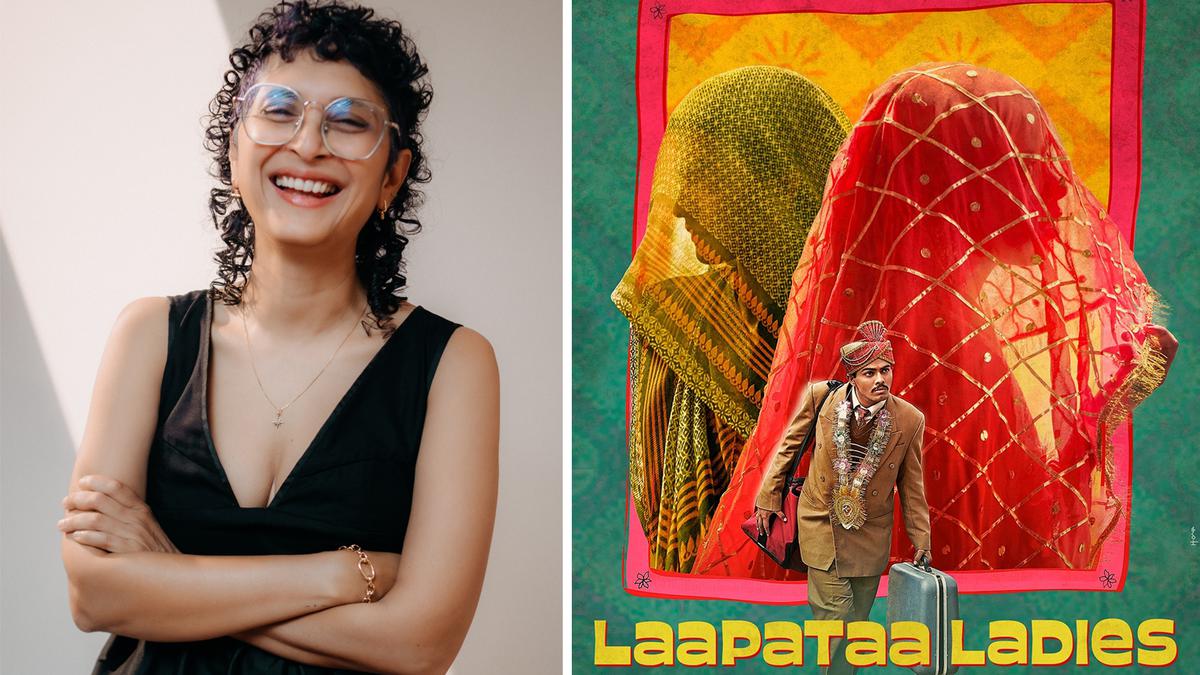In Kiran Rao’s latest directorial venture Laapataa Ladies, a slip-up sets many things right. Two newly-wed brides accidentally get separated from their respective families during a train journey to their husbands’ homes.
Over the next few days, as everybody goes berserk looking for them, one bride discovers a world that had been cordoned off from her, while the other challenges and shakes the patriarchy around her. It is a compulsive comedy that deftly finds humour in the direst situations, even as it addresses weighty social issues.
Releasing on March 1, Laapataa Ladies, which premiered at the Toronto International Film Festival in 2023, is Rao’s second feature film, after 2010’s Dhobi Ghat. The film is based on Biplab Goswami’s prize-winning screenplay, Two Brides, and was brought to her attention by her former husband, actor-producer Aamir Khan. While the screenplay is darker in tone, Rao and her writing partners, Sneha Desai and Divyanidhi Sharma, have infused humour and hope.
In fact, Rao, whose personal favourites when it comes to comedies are Jaane Bhi Do Yaaro and the Monty Python series, went ahead and created her own state, Nirmal Pradesh, to aid the proceedings in Laapataa Ladies. Nitanshi Goel, Pratibha Ranta, Ravi Kishan and Chhaya Kadam play the protagonists in the film, which was shot in rural Madhya Pradesh and Maharashtra. Edited excerpts from an interview:
You are supposedly “back” in the film industry although you were always around, active in other important roles.
The label might be because I have not helmed any film in the last 10-12 years. Maybe, it is also symptomatic of how women’s work is often overlooked because it is not always in the foreground.
Being a mother took up a major chunk of my creative mind in the last decade. I tried very hard to have a child, and when Azad came into my life, I knew I wanted to spend much of my time with him. Having said that, I have also been a part of a lot of projects. We, at Aamir Khan Productions, produced five or six films, and I was also a part of the MAMI Mumbai Film Festival. But, indeed, now I am returning to the industry as a filmmaker, and I am excited to have something of my own to show people.
‘Dhobi Ghat’ was a city film while ‘Laapataa Ladies’ takes the viewer to the heart of rural India. Was there the risk of an outsider gaze creeping in?
I have lived all my life in a city, and I veer towards films set in that milieu. But I think all of us in India must have had an experience of either passing through or living in a village, or might at least have extended family in the countryside. When Aamir narrated Two Brides to me, my first thought was that while the story is set in a village, it has very universal issues at its core.
While working with the Paani Foundation, which we founded in 2016 for watershed management education and agriculture in rural Maharashtra, I had the opportunity to visit and live amongst people in very far-flung villages. So, I felt quite confident that I would get the setting, its people, and the authenticity of a village right. I also took the liberty of making my own state ‘Nirmal Pradesh’, so I could make my own rules and do things my own way. (Laughs)

Kiran Rao during the unveiling of her directorial debut ‘Dhobi Ghat’ in Mumbai, November 2010.
| Photo Credit:
Getty Images
How did you decide upon the locations?
We did the recces during COVID-19 when travelling was rather difficult. We wanted villages with back roads, attached to a small town, with a lot of rural landscape. After a lot of searching, we found our village in Sehore, near Bhopal. It had beautiful streets and waterbodies. We shot much of the village life and domestic scenes there. It also helped that MP Tourism facilitates easy permissions for filming. The train stations that you see in the film are in Maharashtra — Yeola and Kanhegaon, two beautiful small-town stations which have a touch of the colonial era, not completely modernised, which looked like they could be in the 2000s.
Why did you set the film in 2001?
To make it believable that two girls could go missing for days and no one has any idea where they are. Now, the Internet and technology have made it difficult for anyone to “get lost” in the traditional sense. It was also a period when mobile phones made their entry into India and were deemed precious enough to be gifted as dowry.
Why did you develop Biplab Goswami’s grey-shaded screenplay into a comedy?

Screen writer and film editor Biplab Goswami.
I feel comedy has the potential to change your mind, to kind of charm you into changing your opinion, and draw you into a conversation. It disarms you. Humour can say things that we never could say otherwise. Comedy can be a weapon. I knew that was what I wanted to bring to the film. A lot of these issues that we discuss in the film are not anything new. There might not be anybody who does not know about them or has not experienced them in cinema before. Humour gives the narrative a freshness. Laapataa Ladies is a sweet satire.
Tell us about the music used in the film and your enduring association with composer Ram Sampath.
Ram and I go way back. He is one of my first friends in the industry. When we met, in the early 2000s, he was a very young composer, in his late teens, very prolific and incredibly talented. He is versatile in a way that very few composers are — he gets the genre, and he can adapt. He does not have a signature sound which everybody prides themselves on. He creates music for the film, and he brings images to life with his music and instrumentation. Sometimes, he would come up with this unusual Korean string instrument which would perfectly fit the scene. He is a great collaborator for any filmmaker because he comes from a creative point-of-view. We have lots of laughs when we work together. We genuinely enjoy each other’s company because we are also old friends.
Between ‘Dhobi Ghat’ and ‘Laapataa Ladies’, how has the filmmaking landscape changed?
Back then, we managed to release Dhobi Ghat in 200 cinemas. I doubt if it would be possible for a small film to get such a wide release these days. A lot of changes have happened since then — multiplexes, digital transition and technology, the coming of streaming platforms. As a filmmaker, I am forced to be on my toes because I feel audiences today have a great variety of content to choose from. Besides, there is the problem of attention deficit that we feel has perhaps crept in because of content proliferation.
As chairperson of MAMI once, and having seen India’s independent film scene up close, would you say that digital advances have made production and distribution easier?
Distribution and exhibition continue to be a struggle, not just for independent art films but also for those that do not have well-known names attached to them. We thought multiplexes would solve the issue by adding more screens, but that didn’t happen. Today, streaming platforms have made it relatively easier to find screening space. However, if you have made a small film or something that is formally different, reaching your target audience continues to be difficult. This is why film festivals are important. We are being pushed to produce better work, which is the best outcome of these changes.
While you now have your own production company — Kindling Pictures — you are still seen as a part of Aamir Khan Productions (AKP). How do you perceive this lingering association?
I feel I am basking in the sunlight of AKP. I am very much a part of its growth, and I have worked on every single AKP film to date, including Lagaan, in which I was one of the many assistant directors. I have Kindling Pictures, where I will develop the projects I have been working on, but my association with AKP will always be exceedingly dear to me. I will continue to be connected to it emotionally, spiritually, and even professionally.
The writer is a film critic currently residing in London.
#Interview #Kiran #Rao #Laapataa #Ladies #comeback #film #director



